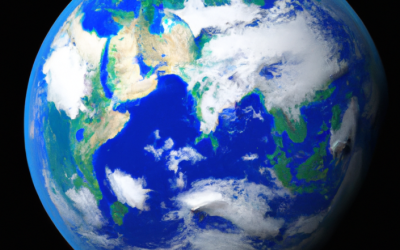Freeman Dyson is a physicist who has been teaching at the Institute for Advanced Study in Princeton since Albert Einstein was there. When Einstein died in 1955, there was an opening for the title of "most brilliant physicist on the planet." Dyson has filled it.
So when the global-warming movement came along, a lot of people wondered why he didn’t come along with it. The reason he’s a skeptic is simple, the 89-year-old Dyson said when I phoned him.
"I think any good scientist ought to be a skeptic," Dyson said.
Dyson came to this country from his native England at age 23 and immediately made major breakthroughs in quantum theory. After that he worked on a nuclear-powered rocket (see video below). Then in the late 1970s, he got involved with early research on climate change at the Institute for Energy Analysis in Oak Ridge, Tenn.
That research, which involved scientists from many disciplines, was based on experimentation. The scientists studied such questions as how atmospheric carbon dioxide interacts with plant life and the role of clouds in warming.
But that approach lost out to the computer-modeling approach favored by climate scientists. And that approach was flawed from the beginning, Dyson said.
"I just think they don’t understand the climate," he said of climatologists. "Their computer models are full of fudge factors."
A major fudge factor concerns the role of clouds. The greenhouse effect of carbon dioxide on its own is limited. To get to the apocalyptic projections trumpeted by Al Gore and company, the models have to include assumptions that CO-2 will cause clouds to form in a way that produces more warming.
"The models are extremely oversimplified," he said. "They don't represent the clouds in detail at all. They simply use a fudge factor to represent the clouds."
Dyson said his skepticism about those computer models was borne out by recent reports of a study by Ed Hawkins of the University of Reading in Great Britain that showed global temperatures were flat between 2000 and 2010 — even though we humans poured record amounts of CO-2 into the atmosphere during that decade.
That was vindication for a man who was termed "a civil heretic" in a New York Times Magazine article on his contrarian views. Dyson embraces that label, with its implication that what he opposes is a religious movement. So does his fellow Princeton physicist and fellow skeptic, William Happer.
"There are people who just need a cause that’s bigger than themselves," said Happer. "Then they can feel virtuous and say other people are not virtuous."
To show how uncivil this crowd can get, Happer e-mailed me an article about an Australian professor who proposes — quite seriously — the death penalty for heretics such as Dyson. As did Galileo, they can get a reprieve if they recant.
I hope that guy never gets to hear Dyson’s most heretical assertion: Atmospheric CO-2 may actually be improving the environment.
"It’s certainly true that carbon dioxide is good for vegetation," Dyson said. "About 15 percent of agricultural yields are due to CO-2 we put in the atmosphere. From that point of view, it’s a real plus to burn coal and oil."
In fact, there’s more solid evidence for the beneficial effects of CO-2 than the negative effects, he said. So why does the public hear only one side of this debate? Because the media do an awful job of reporting it.
"They’re absolutely lousy," he said of American journalists. "That’s true also in Europe. I don’t know why they’ve been brainwashed."
I know why: They’re lazy. Instead of digging into the details, most journalists are content to repeat that mantra about "consensus" among climate scientists.
The problem, said Dyson, is that the consensus is based on those computer models. Computers are great for analyzing what happened in the past, he said, but not so good at figuring out what will happen in the future. But a lot of scientists have built their careers on them. Hence the hatred for dissenters.
"It was similar in the Soviet Union," he said. "Who could doubt Marxist economics was the future? Everything else was in the dustbin."
There’s a lot of room left in that bin for the ideas promulgated by people dumber than Dyson. Which is just about everyone.
ADD: This quote from the great H.L. Mencken captures perfectly the religious nature of those in the climate cult:
"The essence of science is that it is always willing to abandon a given idea, however fundamental it may seem to be, for a better one; the essence of theology is that it holds its truths to be eternal and immutable."


